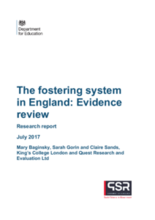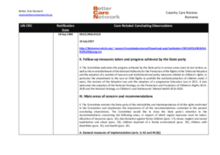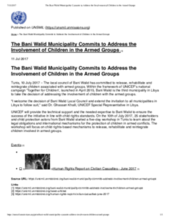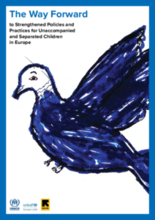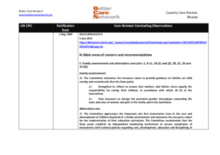Displaying 781 - 790 of 1796
This study sought to identify child, carer, and intervention characteristics that contribute to child wellbeing for Aboriginal children in out-of-home care in Australia. The article also identifies enablers and barriers to providing trauma-informed and culturally competent care to Aboriginal children.
Concern about the effectiveness of Serious Case Reviews for generating improvements in child protection in England led to proposals in the Wood review to replace the current system with rapid local learning inquiries and a national system of learning from significant incidents. This article challenges both the analysis in the Wood review and the proposals themselves.
Commissioned by England's Department for Education, this review of the fostering system in England provides a look into the details of the foster care system, how it functions and how children in care are impacted by it, and identifies gaps and areas for improvement.
This country care review includes the care-related Concluding Observations adopted by the Committee on the Rights of the Child during the seventy-fifth session (15 May 2017 - 02 Jun 2017) of the Convention on the Rights of the Child.
This country care review includes the care-related Concluding Observations adopted by the Committee on the Rights of the Child during the seventy-fifth session (15 May 2017 - 2 Jun 2017) of the Convention on the Rights of the Child.
The local council of Bani Walid, Libya has committed to release, rehabilitate and reintegrate children associated with armed groups.
This paper, based on findings from a consultative process with a variety of actors, captures a multitude of concrete recommendations for more efficient and harmonized policies and practices, taking into account the best interests of unaccompanied and separated children (UASC) in Europe.
This article focuses on the relationship between economic inequality and out-of-home care and child protection interventions in England.
This country care review includes the care-related Concluding Observations adopted by the Committee on the Rights of the Child during the seventy-fifth session (15 May 2017 - 2 Jun 2017) of the Convention on the Rights of the Child.
This country care review includes the care-related Concluding Observations adopted by the Committee on the Rights of the Child during the seventy-fifth session (15 May 2017 - 02 Jun 2017) of the Convention on the Rights of the Child.

